Results
-
£84.50
Dance Of The Harlequins
Dance of the Harlequins is a dance-like composition that uses the harmonic progression of the famous Pachelbel Canon as its basis. Depicting the painted, jerky harlequin clown, it is at times playful, and others, simply beautiful. The familiarity of the famous bass line makes this work feel comfortable and pleasurably original at the same time, and your groups will love the new spin on the Pachelbel Canon.
Estimated dispatch 7-14 working days
-
 £53.50
£53.50Pachelbel's Christmas
Combining the familiar Canon in D with a multitude of popular Christmas carols, this clever and unique arrangement for beginning bands will be the talk of the concert. See how many tunes you can identify.includes: Canon In D; The First Noel; Go, Tell It On The Mountain; Good King Wenceslas; Hark! The Herald Angels Sing; Jingle Bells; Jolly Old St. Nicholas; Joy To The World; Up On The Housetop; We Wish You A Merry Christmas
Estimated dispatch 7-14 working days
-
 £62.00
£62.00Bad King Wenceslas
Bad King Wenceslas is a playful twist on the familiar Christmas carol Good King Wenceslas. Throughout the piece, rhythmic and melodic motifs from the carol are presented in a dark, mysterious context. The introduction features an ostinato in the flute, building in momentum before revealing the melody in double time in the lower winds. The piece progresses with alternating eighth-note patterns and a variety of thematic development, culminating in a canon that features different instrument sections. The piece transitions through a dramatic key change and ends with fanfare motifs in the brass. The conductor should ensure that the melody remains balanced throughout, and all percussion parts are integral to the mood and momentum.
Estimated dispatch 12-14 working days
-
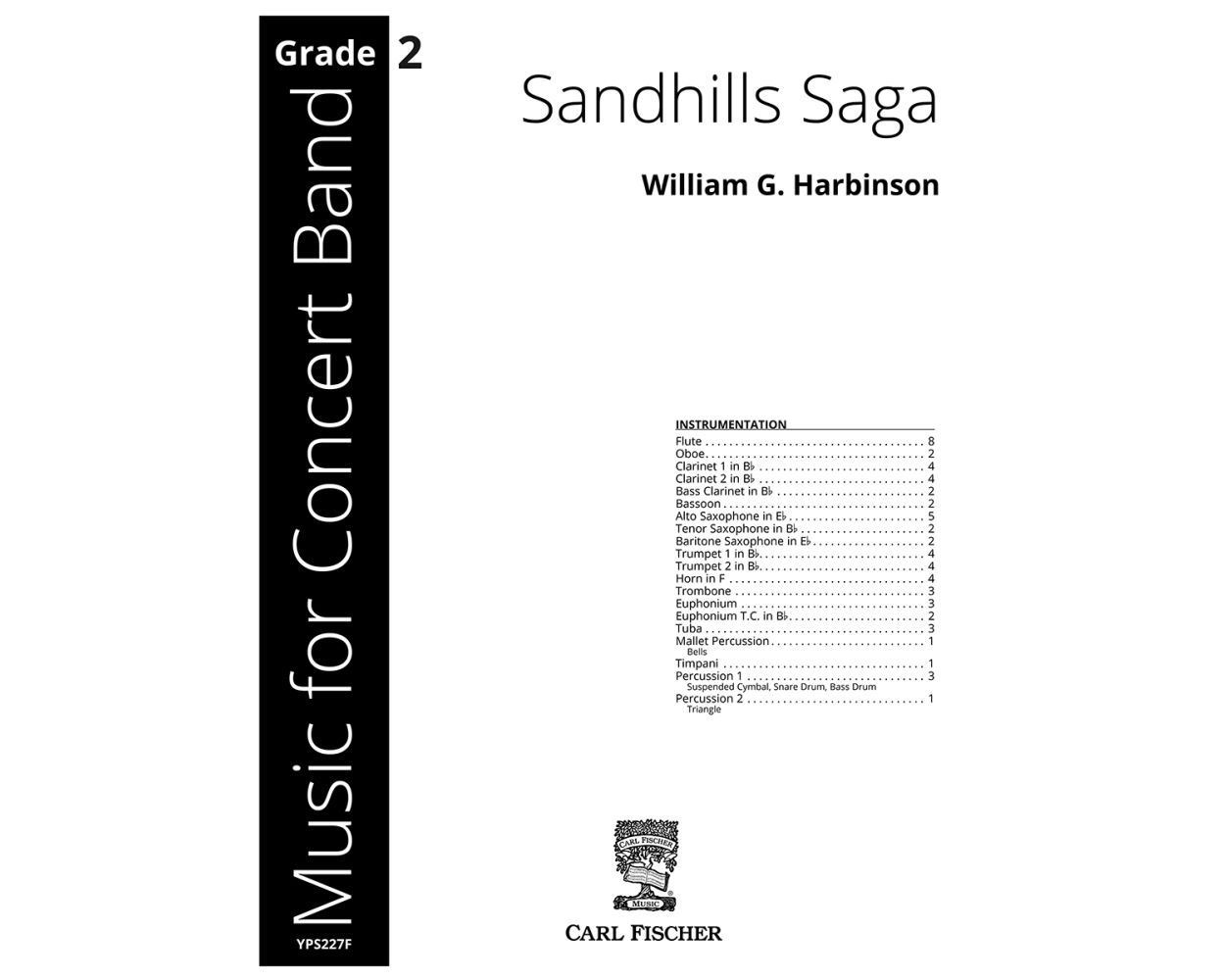 £48.00
£48.00Sandhills Saga
Use the intertwining melodies of this composition to teach the important musical concept of the canon. Each instrument gets a moment to sing out during the development of an easy, yet musically challenging, melody. With a quiet introduction followed by brisk "alla marcia" section with a lively close, use this as a unique concert selection to educate your students and audience as well.
Estimated dispatch 12-14 working days
-
 £273.00
£273.00A Child's Garden of Dreams
David Maslanka's A Child's Garden of Dreams for Wind Ensemble, written in 1981, takes inspiration from the writings of Carl Jung, specifically the dreams recounted in Man And His Symbols. Five of the twelve dreams recounted by Jung serve as motifs and titles for the five movements of this composition: 1. There is a desert on the moon where the dreamer sinks so deeply in to the ground that she reaches hell; 2. A drunken woman falls into the water and comes out renewed and sober; 3. A horde of small animals frightens the dreamer. The animals increase to a tremendous size, and one of them devours the little girl; 4. A drop of water is seen as it appears when looked at through a microscope. The girl sees that the drop is full of tree branches. This portrays the origin of the world; and 5. An ascent into heaven where pagan dances are being celebrated; and a descent into hell, where angels are doing good deeds. A Child's Garden of Dreams is a pillar of the standard wind ensemble canon, performerd hundreds of times by a variety of professional and collegiate ensembles and recorded on several critically acclaimed albums. Maslanka has also set the work for full orchestra (C672).
Estimated dispatch 12-14 working days
-
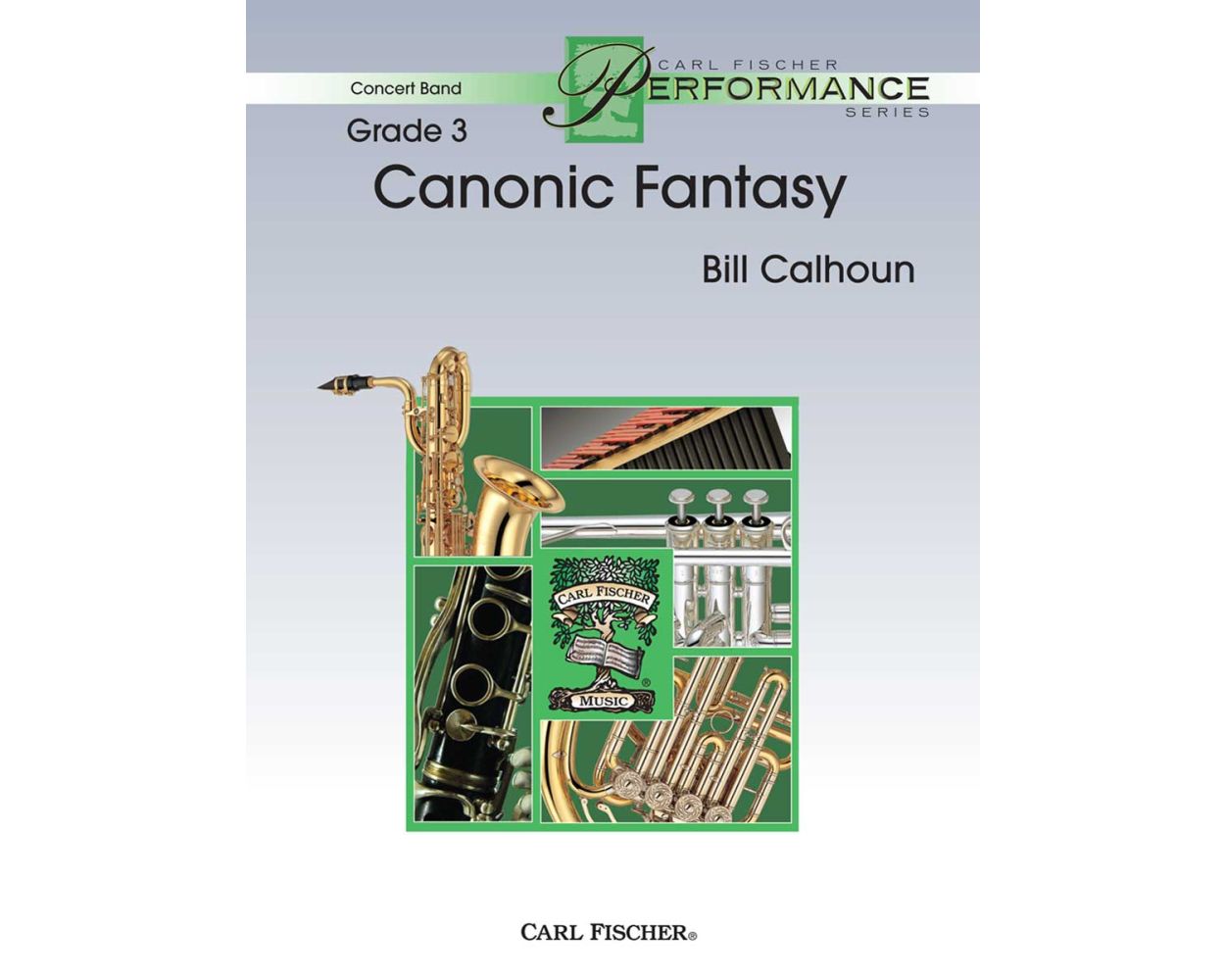 £62.00
£62.00Canonic Fantasy - Bill Calhoun
As the title implies, Canonic Fantasy is based on a harmonic canon that forms the basis for this excellent new concert band work. It begins slowly and dramatically and then weaves into a bold and dynamic allegro. Alert your contest list committee about this piece?it has all the makings of standard fare for contest/festival performance!
Estimated dispatch 12-14 working days
-
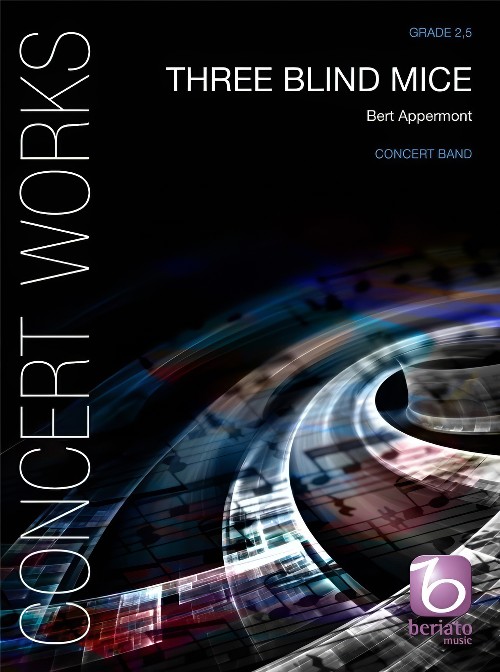 £102.99
£102.99Three Blind Mice (Concert Band - Score and Parts) - Appermont, Bert
This composition is based on the children's song Three Blind Mice, of which the melody is featured in a range of variations: in a canon, in inversion, in minor, transformed, with changing harmonisations and orchestrations, and in different times and tempi. The work consists of three continuous, contrasting movements:Mouse March: The mice cheerfully set off while the original melody is presented as a marchHymn: In a tuneful hymn, the wonderful praises of the life of mice are sungCatch Me If You Can: In an animated chase, the farmer's wife is trying to catch the mice. Following a stirring acceleration, she cuts off their tails in accordance with the lyrics of the songThis work, with its humorous touch, will be a welcome contribution to the expansion of interesting repertoire for the lower divisions.Duration: 6.45
Estimated dispatch 7-14 working days
-
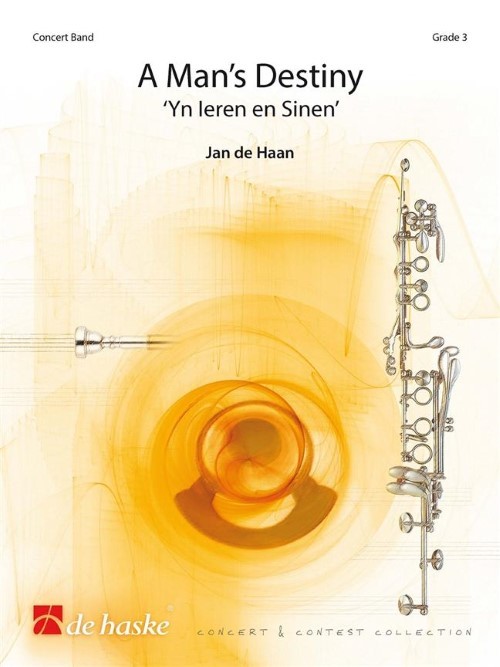 £139.99
£139.99A Man's Destiny (Yn Ieren en Sinen) (Concert Band - Score and Parts) - De Haan, Jan
A Man's Destiny has the Frisian line Yn Ieren en Sinen (with much conviction) as its subtitle. The work was commissioned by CMV Harmonie Sneek (based in Friesland, The Netherlands) to acknowledge their 95th anniversary. The composer based this work on the life of a former member of the band, who played flugelhorn in the ensemble until the age of 86. Their favourite piece of music, Canon by Thomas Tallis, provided a great deal of musical inspiration for this characteristic and versatile work in which the flugelhorn plays a significant role.Duration: 11.00
Estimated dispatch 7-14 working days
-
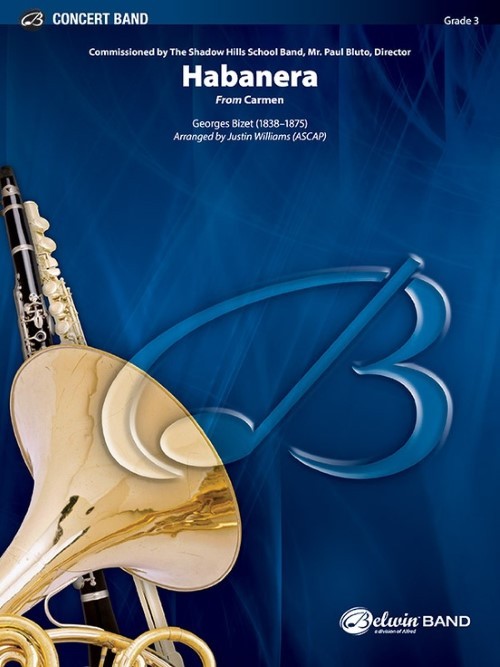 £64.50
£64.50Habanera (Concert Band - Score and Parts) - Bizet, Georges - Williams, Justin
French composer Georges Bizet's four-act opera, Carmen , remains one of the most popular and performed works in the classical canon. This piece is perhaps the most popular portion of the opera. Its playful character and flirtatious mood are exposed in this contemporary setting.Duration: 3:00
Estimated dispatch 7-14 working days
-
 £49.00
£49.00On a Peaceful Night (Concert Band - Score and Parts) - Neeck, Larry
Perfect for that reflective moment in your holiday concert, "On A Peaceful Night" is based on the traditional melody "Dona Nobis Pacem" (Grant Us Peace.) After a fully-scored introduction, this theme is presented as a canon, and the work evolves into a stunning, lyrical showcase for your band. Great teaching moments abound, and everyone gets to play the beautiful melody. Convey a warm message of peace and hope for the holiday season with "On A Peaceful Night." Duration: 2.45
Estimated dispatch 7-14 working days
